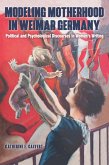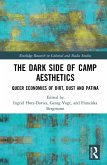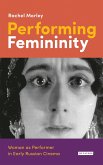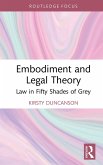This volume of new essays represents a collective, academic, and activist effort to interpret German literature and culture in the context of the international #MeToo movement, illustrating and interrogating the ways that "rape cultures" persist.
Responding to the worldwide impact of the #MeToo movement, this volume investigates not only the ubiquity of sexual abuse and sexual violence but also the transhistorical and transnational failure to hold perpetrators accountable. From a range of disciplines, the collected essays engage current cultural and political discourses about systemic sexism, feminist theory and practice, and gender-based discrimination from an academic and activist perspective. The focus on national cultures of German-speaking Europe from the mid-eighteenth century to the present captures the persistence of normalized and institutionalized sexism, reframed through the lens of a contemporary political and social movement.
German #MeToo argues that sexual violence is not a universal human constant. Rather, it is nurtured and sustained by the social, political, cultural, legal, and economic fabric of specific societies. The authors sustain and vary their exploration of #MeToo-related issues through considerations of rape, prostitution, sexual murder, the politics of consent, and victim-blaming as enacted in literary works by canonical and marginalized authors, the visual arts, the graphic novel, film, television, and theater. The analysis of rape myths - of discourses and practices in German history and culture that subtend and indemnify sexual violence - is a central subject of this edited volume. Throughout, German #MeToo challenges narratives of sex-based discrimination while emphasizing the strategies of resistance and the importance of telling one's own story.
Responding to the worldwide impact of the #MeToo movement, this volume investigates not only the ubiquity of sexual abuse and sexual violence but also the transhistorical and transnational failure to hold perpetrators accountable. From a range of disciplines, the collected essays engage current cultural and political discourses about systemic sexism, feminist theory and practice, and gender-based discrimination from an academic and activist perspective. The focus on national cultures of German-speaking Europe from the mid-eighteenth century to the present captures the persistence of normalized and institutionalized sexism, reframed through the lens of a contemporary political and social movement.
German #MeToo argues that sexual violence is not a universal human constant. Rather, it is nurtured and sustained by the social, political, cultural, legal, and economic fabric of specific societies. The authors sustain and vary their exploration of #MeToo-related issues through considerations of rape, prostitution, sexual murder, the politics of consent, and victim-blaming as enacted in literary works by canonical and marginalized authors, the visual arts, the graphic novel, film, television, and theater. The analysis of rape myths - of discourses and practices in German history and culture that subtend and indemnify sexual violence - is a central subject of this edited volume. Throughout, German #MeToo challenges narratives of sex-based discrimination while emphasizing the strategies of resistance and the importance of telling one's own story.
Dieser Download kann aus rechtlichen Gründen nur mit Rechnungsadresse in A, D ausgeliefert werden.









